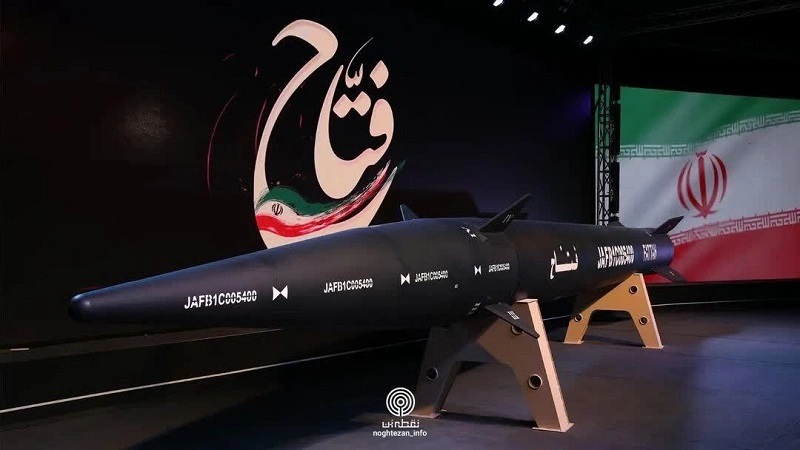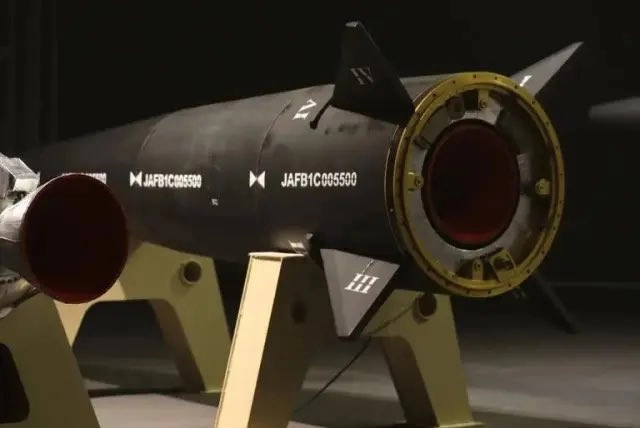

Iran has unveiled its first hypersonic missile 'Fattah'
Less than 12 hours after Iran unveiled its first hypersonic missile ‘Fattah’, the United States announced sanctions against a number of companies involved in Tehran’s missile programme, including those operating from Chinese soil.
Earlier Wednesday, the US Department of the Treasury’s Office of Foreign Assets Control (OFAC) sanctioned a network of seven individuals and six entities in Iran, China and Hong Kong in connection with Iran’s ballistic missile programme.
According to Washington, the network conducted financial transactions and facilitated the procurement of sensitive and critical parts and technology for key actors in Iran’s ballistic missile development, including Iran’s Ministry of Defence and Armed Forces Logistics (MODAFL) and its affiliated organisations.


The US also designated Iran’s Defence Attache in Beijing, alleging that the official coordinated military-related procurements from China for Iranian end-users, including MODAFL subsidiaries.
“The Iranian regime continues to destabilize the Middle East region, including by developing and proliferating dangerous weapons. The US continues to work with allies and partners, including in the region, to deter and counter Iran’s destabilizing behaviour,” said US State Department’s spokesperson Vedant Patel.
The developments took place at a time when the US Secretary of State Antony Blinken is in Saudi Arabia to discuss US-Saudi strategic cooperation on regional and global issues and met Saudi Crown Prince and Prime Minister Mohammed bin Salman in Jeddah.
The United Kingdom also reacted strongly to Iran’s revealing of its new ballistic missile, which top officials of the Islamic Revolutionary Guard Corps (IRGC) Aerospace Force claimed could reach Israel 400 seconds after its launch.
“Iran has announced the development of a new ballistic missile, despite repeated calls from the UN Security Council to halt its programme. This, only weeks after Iran claimed to have successfully test-launched a ballistic missile of similar capability, further proves its continued disregard of international restrictions and the grave threat posed by the regime to global security,” the UK Foreign Ministry said in a statement.
The ‘Fattah’ missile, which has a range of up to 1400 km and can hit speeds of Mach 13-15, was unveiled on Tuesday in a ceremony which was attended by Iranian President Ebrahim Raisi, IRGC Commander-in-Chief Major General Hossein Salami and top officials of the country’s aerospace force.
Iran has been earlier accused of selling drones to Russia, signalling Tehran’s military heft despite decades of sanctions.
“We thank God for this great achievement because it will make the country stronger. This missile will enhance Iran’s deterrent power which brings security and stable peace to the countries of the region,” Raisi was quoted as saying by the local media.
Analysts in Tehran believe that with the unveiling of ‘Fattah’, Iran has become one of the few countries in the world to possess hypersonic missile technology.
Designed to evade detection across multiple domains and strike targets anywhere on the globe, Hypersonic weapons are extremely difficult to counter given their speed and manoeuvrability, low flight paths and unpredictable trajectories.
Australia's High Commissioner to India, Philip Green OAM, called Yoga one of India's gifts to…
The Bharat Sanchar Nigam Limited (BSNL) has announced the soft launch of BSNL Quantum 5G…
The Indian Embassy in Iran has said that the embassy will make efforts to evacuate…
India's gross direct tax collections for the financial year 2025-26 rose by 4.86 per cent…
Russian President Vladimir Putin has said that Moscow is not seeking Ukraine's unconditional surrender, but…
Extending his greetings on the 11th International Day of Yoga, Lok Sabha speaker Om Birla…